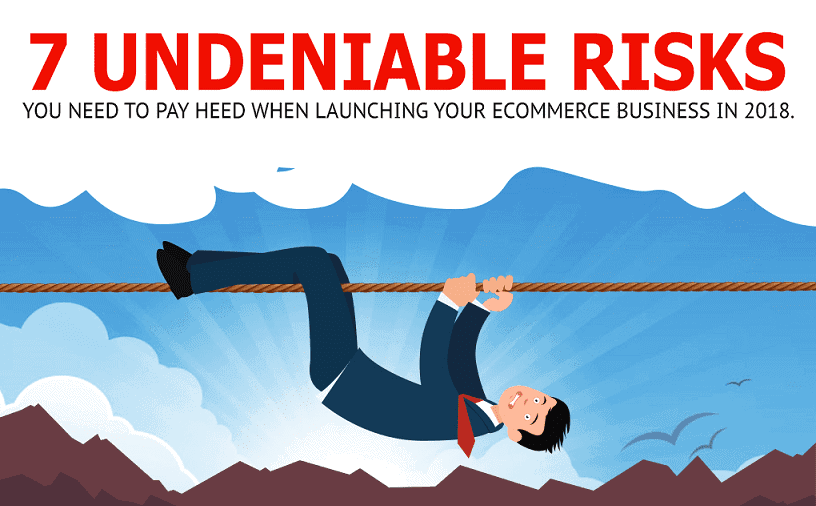The avalanche of complaints of cyber fraud and risks in eCommerce business is truly overwhelming. No doubt, as complaints continue to pour in at an unprecedented rate, cyber fraud has been the subject of much debate.
It behooves, therefore, to learn about the risks involved in eCommerce business.
Let’s get started
Risk #1: It is an uncontested fact that eCommerce businesses are prone to phishing and hacking attacks, credit card fraud and data errors.
Solution: To minimize the incidence of credit card fraud, request your users for non-storable CVV. To mitigate online attacks, deploy multilayered security and PCI scans along with SSL certifications
Risk #2: Ecommerce Intellectual Properties (IP) such as product description, logos and mission statements are vulnerable to unauthorized use and infringement
Solution: Accost a business attorney and perform an IP audit. If required, file a patent(s) to safeguard your IP(s)
Risk #3: Customer disputes and charge-back claims can impede your sales
Solution: Check the validity of cashback claims. Until and unless the item is shipped, do not charge your customers. If your refund policy is at fault, acknowledge your mistake(s) and rectify the same
Risk #4: Delay in product delivery can negatively affect customer satisfaction
Solution: Develop expertise in logistics, drop shipping and inventory management. Inventory management entails aspects such as safety stock management, cycle stock management.
Risk #5: Poor customer service can take its toll on your brand reputation
Solution: Customers are delighted when their expectations are met. To enhance customer service, use chat-bots. Professionally respond to their queries and TAT (Turn – Around – Time) should be minimum.
Risk #6: Tax management can be a head-ache
Solution: Sales tax varies across different delivery locations. Identify all your stakeholders – location, personnel, inventory, affiliates, drop shippers etc. Apportion taxes accordingly.
Risk #7: The ever-changing Google algorithm can mess with your website SEO
Solution: Stick to fundamentals. Product titles and descriptions should contain keywords. Keyword density should be optimum. Devise a social media strategy. Bet your chances on organic and paid traffic. Maintain consistency and keep monitoring your results
Found this useful? Keep watching this space for informative content. Cheers!

AUTHOR BIO

Follow me on Twitter @Jessicabruc (https://twitter.com/Jessicabruc)
Related Topics
- Best VPS Hosting
- Best Web Hosting
- Cost of Building a Website
- Best WordPress Hosting
- How to Build a Shopify Store
- Best eCommerce Software
- Key to Successful Online Retail Business in Nigeria
- Building a Worthy Online Retail Business in Nigeria
- Online Stores in Nigeria
- Sales and Marketing Tips for Startups
- How to Boost your Website Conversions
- Shopify email Notifications for Upselling
- Marketing Automation Mistakes
- Location-Based Marketing
- Growth Hacking Tips for eCommerce







